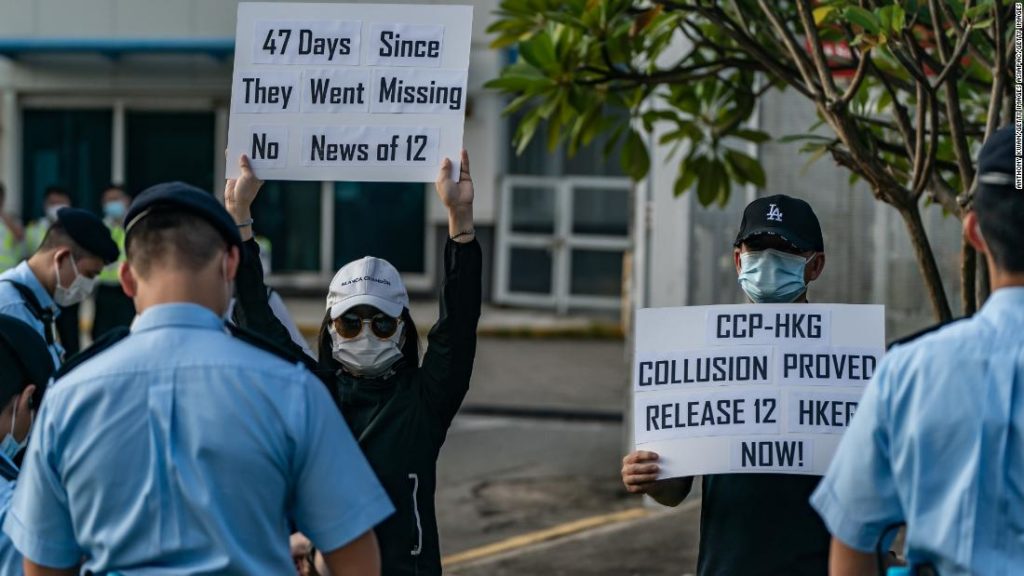The indictment took their cases a step closer to court, although no date has been set for their hearings to begin.
A court in the southern city of Shenzhen, where the 12 have been held, said in a statement on Wednesday that two members of the group had been charged with organizing illegal border crossings, while eight were charged with illegal border crossing. The remaining two, both minors, will be subject to a closed-door hearing and “decisions will be made according to the law,” the statement said.
According to China’s criminal law, those convicted of organizing illegal border crossing can face two to seven years in jail — and in severe cases, life imprisonment. The crime of illegally crossing the border can lead to a maximum of one year’s imprisonment. China’s judicial system has a conviction rate around 99%, according to legal observers.
Soon after they crossed the maritime border between Hong Kong and the Chinese mainland, their boat was stopped by a coast guard vessel.
They have been detained in mainland China ever since while their families have desperately lobbied for their return, saying the 12 have been denied access to lawyers and abused while in Chinese custody.
Mainland authorities have said they will “protect the legitimate rights of the suspects in accordance with the law,” and have provided them with government-appointed lawyers.
In the statement, the family members also took issue with the arrangement of government-appointed lawyers.
“The families cannot trust that the ‘government-appointed lawyers’ to protect the interests of the twelve during the trial, and they fear that the ‘government-appointed lawyers’ will follow the orders of the government and act against the interest of the twelve,” the statement said.
Chinese courts — along with prosecutors and police — are overseen by the Chinese Communist Party’s powerful Central Political and Legal Affair Commission and its local branches.
This year, as protests began to pick up again following a coronavirus-forced break, the Chinese government imposed a national security law on Hong Kong, criminalizing sedition, secession and subversion.
The law, which the government says is necessary to restore order, has caused several prominent activists to flee overseas.
You may also like
-
Afghanistan: Civilian casualties hit record high amid US withdrawal, UN says
-
How Taiwan is trying to defend against a cyber ‘World War III’
-
Pandemic travel news this week: Quarantine escapes and airplane disguises
-
Why would anyone trust Brexit Britain again?
-
Black fungus: A second crisis is killing survivors of India’s worst Covid wave

